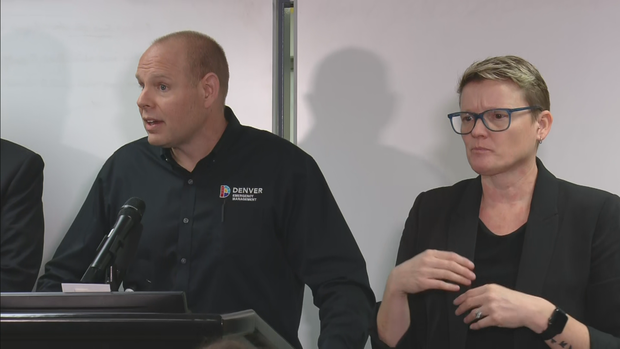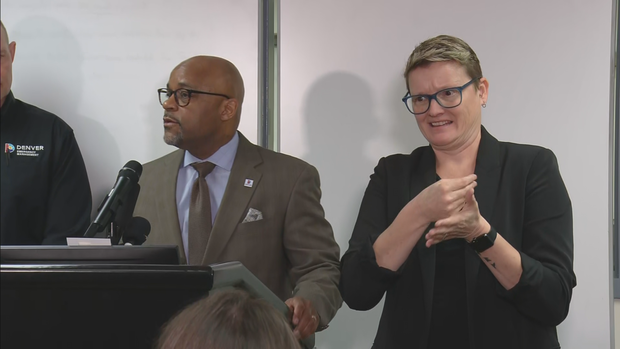Denver's Office Of Emergency Management Partially Activates For Coronavirus
DENVER (CBS4)- The Denver Office of Emergency Management partially activated on Monday morning due to coronavirus. There are still two presumptive positive cases of coronavirus in Denver with eight people quarantined.
The Denver Office of Emergency Management will be running the Emergency Operations Center very day from now until the duration of as long as this takes. The center will bring together all of the resources within the City and County of Denver as well as its partners and consolidate planning, public information and operational coordination.
"We're focused on public health and safety, protective measures and interventions, public messaging to all of our community, economic impacts not only to the city but to all of our businesses and residents and finally, continuity of government operations, ensuring that while this is going on, we are able to maintain those critical services that every one in this city needs," said Denver Office of Emergency Management executive director Matt Mueller.
The total number of positive cases of coronavirus in Colorado was nine as of Monday morning, with the latest case testing positive in Larimer County.
The two cases in Denver are considered "presumptive" until the Centers for Disease Control and Prevention confirm the cases. Both cases are symptomatic and isolated but do not require hospitalization at this time.
On Monday morning, Denver Mayor Michael Hancock stressed the importance of washing your hands and staying away from people if you feel sick.
"Constant hand washing, being precautious when it comes to greeting people, if you see someone who may be demonstrating symptoms, keeping your distance from them. If you're not feeling well, stay at home, not only for your protection but for everyone else's," said Hancock.
Hancock also stressed the economic impact that coronavirus can have on Denver's economy. He said that hotels and venues are being vigilant about disinfecting surfaces to help their guests feel comfortable.
"If people don't go to restaurants because of their concerns with COVID-19, we don't get that back. In other words, when we get over the hump, you won't say, 'Because I missed going to the restaurant a month ago, I'm going to double up this week.' So that's revenue that's lost forever in the city of Denver. We have to prepare for that as a city," said Hancock. "We have to think about how we can get the city through this difficult time."
Additional information from Denver Department of Public Health and Environment:
Residents of Denver need to remember:
- Wash your hands often with soap and water for at least 20 seconds; Use an alcohol-based hand sanitizer that contains at least 60% alcohol if soap and water are not available.
- Avoid touching your eyes, nose, and mouth with unwashed hands.
- Stay home when you are sick.
- Cover your cough or sneeze with a tissue, then throw the tissue in the trash.
- Clean and disinfect frequently touched objects and surfaces.
- Avoid close contact with people who are sick.
If you are feeling ill with symptoms similar to those associated with COVID-19:
- Manage your symptoms at home the same way you manage other cold symptoms. We want to reduce the risk of transmission, so to the extent possible, people with flu-like symptoms should remain at home.
- If you need medical care, contact your primary care provider and schedule a visit. Let them know that you are concerned you might have COVID-19.
- Only contact 911 for emergencies requiring immediate life-saving care and let them know if you are concerned you might have COVID-19.
- Restrict visits to the hospital emergency room or urgent care - only individuals needing immediate care should visit these facilities. If you must visit an ER or urgent care facility, call ahead and let them know that you are concerned you might have COVID-19.
CDC's testing guidance includes three types of people:
- Those who have symptoms such as fever OR lower respiratory symptoms (cough or shortness of breath) and have had "close contact" with a confirmed coronavirus patient within 14 days of their first symptoms.
- Those who have fever AND/OR lower respiratory symptoms, require hospitalization, and have traveled to areas impacted by the epidemic in the last 14 days.
- Patients with fever and severe, acute lower respiratory symptoms who require hospitalization, and for whom no other diagnosis has been found — such as the flu. No travel or contact exposure is needed.





